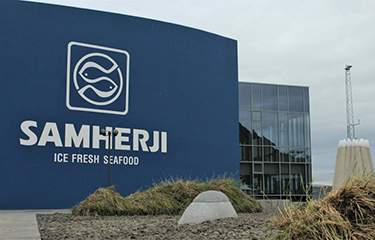In a groundbreaking move, WikiLeaks has published a staggering trove of over 30,000 documents obtained from a courageous whistleblower within SAMHERJI, a multinational fishing company headquartered in Iceland. The leaked documents shed light on corrupt practices undertaken by the company to secure access to lucrative fishing grounds off the coast of Namibia, an African country rich in marine resources. The revelations bring to the forefront the extent of corruption within the fishing industry and its detrimental impact on developing nations.
SAMHERJI’s Corrupt Schemes:
The leaked documents, spanning the period from 2010 to 2016, paint a damning picture of SAMHERJI’s operations in Namibia. During this time, the company solidified its position as the largest recipient of fishing quotas in the country. However, it is now clear that SAMHERJI achieved this through illicit means, primarily by paying off senior Namibian officials and politicians.
The leaked files, consisting of emails, internal reports, spreadsheets, presentations, and photos, provide detailed evidence of the millions of dollars funneled by SAMHERJI to secure ongoing access to Namibia’s valuable fishing resources. Furthermore, the documents expose the company’s failure to fulfill its promises of infrastructure development and job creation in Namibia, while simultaneously siphoning off proceeds from its operations through its international corporate structure.
International Implications:
SAMHERJI’s operations extend beyond Namibia, with a presence in Iceland, Germany, Poland, the United Kingdom, the Faroe Islands, Canada, France, Spain, Portugal, and beyond. The leaked documents raise concerns about the company’s practices in other countries, highlighting the need for international scrutiny and accountability.
Whistleblower and Collaborative Investigations:
The courageous whistleblower behind these revelations is Mr. Jóhannes Stefánsson, the former Managing Director of SAMHERJI’s Namibian operations. By stepping forward and sharing the incriminating evidence, Mr. Stefánsson has taken a stand against corruption and is actively cooperating with anti-corruption authorities and police in Namibia. The investigation has been underway for nearly a year, and Namibian authorities have sought assistance from their counterparts in Dubai, Mauritius, Cyprus, Norway, and Iceland.
Norway’s involvement is particularly notable as some of the Cyprus-based companies linked to SAMHERJI utilized Norwegian bank accounts to facilitate fund transfers. This collaboration underscores the need for international cooperation in combating cross-border corruption and money laundering.
Implications for the Fishing Industry:
The revelations surrounding SAMHERJI’s corrupt practices in Namibia serve as a stark reminder of the rampant corruption prevalent within the global fishing industry. The disproportionate power held by multinational fishing corporations often leads to the exploitation of marine resources, detrimental environmental practices, and the manipulation of local governance systems.
This exposé calls for increased transparency, stricter regulation, and stronger international enforcement mechanisms to ensure sustainable fishing practices and protect the interests of local communities in countries where these companies operate.
The WikiLeaks publication of over 30,000 documents obtained from a whistleblower within SAMHERJI has brought to light a significant corruption scandal in the company’s Namibian operations. The leaked files expose a web of illicit activities involving payoffs, broken promises, and financial maneuvers designed to exploit Namibia’s fishing resources for personal gain. The impact of this scandal reaches far beyond Namibia, raising questions about the fishing industry’s practices worldwide and emphasizing the urgent need for comprehensive reform and international cooperation to combat corruption and promote sustainable fishing practices.
